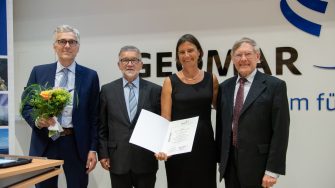Professor Katrin Meissner awarded Petersen Excellence Professorship from the GEOMAR Helmholtz Centre for Ocean Research
Professor Katrin Meissner has been honoured with the prestigious 28th Prof. Dr. Werner Petersen Foundation Excellence Professorship in recognition of her remarkable contributions to the field of Earth history research and the advancement of Earth system models.

